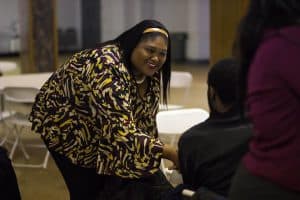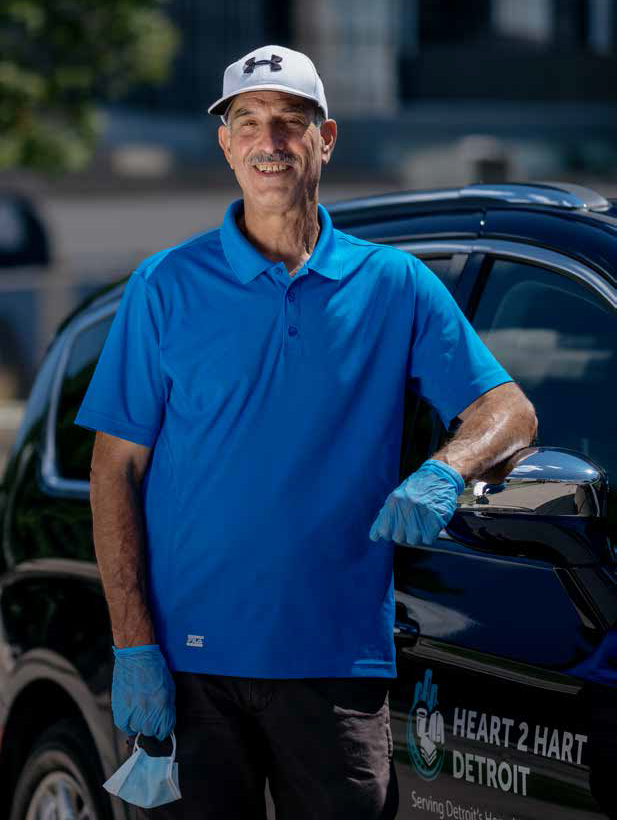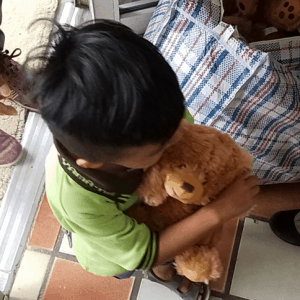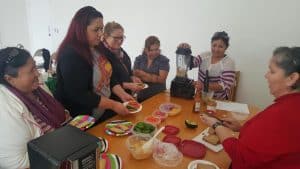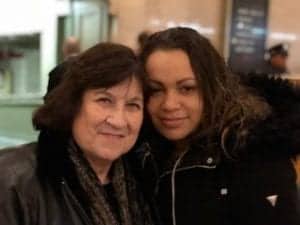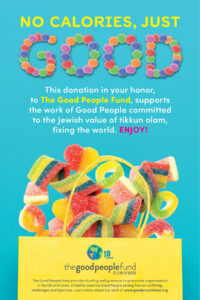Courtney Smith was out of college and living with housemates in Detroit when the doorbell rang. Her brother, six years younger, was homeless and without resources and needed help.
She took him in, at least for the interim. But soon, a handful of his friends from the street – all in similar circumstances – were camped out on air mattresses strewn throughout the basement.
The situation was all too disturbingly and shockingly familiar. Courtney herself had grown up in the foster care system, and was adopted into a family, but left at age 15 due to family conflict and ended up couch surfing, doubling up, and living in shelters. And even in college, she faced housing insecurity.
“Homelessness is very personal to me,” she said. “It can be a cyclical issue that goes on for generations if we don’t do something about it.”
And so she set out to do so, starting on a determined path that led to the founding in 2016 of Detroit Phoenix Center (DPC), the city’s first-ever drop-in center for street-connected youth. DPC is a new grantee organization of The Good People Fund.
The organization offers various low-barrier portals into a safe space for teens and young adults who are at risk of or experiencing homelessness. There, they can access basics that can mean survival – from showers, meals, laundry services, lockers, day beds, and other needs, to career and life skills workshops, computer labs, housing crisis support … and a community of care and concern.
Pre-pandemic, DPC reached and engaged about 150 teens and young adults each year. But for the very fact that there is simply no other such place in Detroit – one designed with a holistic approach to help them with immediate and daily needs, and also to disrupt predictable and unwelcome trajectories – many may have disappeared into the environment with no trace or hope.
As COVID-19 has resulted in increasingly restricted access to DPC, and quite literally exposed a severely vulnerable population to illness and death, the organization has taken to the streets. It is finding street-connected youth where they congregate and live to bring them mobile- and virtual-supported help, assistance and counsel – ranging from basics like face masks and hand sanitizer, to healthy food and housing vouchers.
“Many don’t have anywhere to go to shelter in place,” Courtney said. “Many don’t have access to running water and soap to wash their hands for 20 seconds. Many are living in abandoned buildings in groups of ten or more, and transmission is an issue.
“We’ve had to change our whole service provision during this time and be innovative. They are very high risk and vulnerable during a pandemic. We have to be out there.”
At the heart of DPC is Courtney’s recognition that it would be nothing if not informed by the youth that it attracts and serves. In fact, she labels herself a “servant leader.”
“The work we do is truly driven by heart and humility and selflessness,” she said. “There is no ego here. The youth are the ones who have to be centered and elevated. Their lived experiences form the fabric of DPC, and intentionality in putting their voices first is key to allowing them to be served effectively.”
In fact, DPC has a “Youth Action Board” that provides leadership and personal development for members who have direct experience with homelessness and other adverse societal conditions as they give input into DPC programming, services and reach, and advocate for positive systemic change.
Ask Courtney what’s at the heart of her passion and commitment to uplift and help vulnerable youth in Detroit, and she speaks about that “lived experience.” It’s a term that comes up frequently in conversation with her, framing as it does a worldview of not only challenges, but also solutions.
It took on even deeper significance and meaning when her brother, Blair – who knocked on her door at a moment of need just a few short years earlier – died by suicide at the age of 19. It was on the eve of the opening of DPC, which he’d helped to envision and design, and where he was voted by peers as first president of the Youth Action Board.
“There is a pain point for me in this work,” Courtney said. “Those can either cripple us or force us to show up in the world as the best versions of ourselves. I chose the latter.”
By H. Glenn Rosenkrantz, for The Good People Fund

